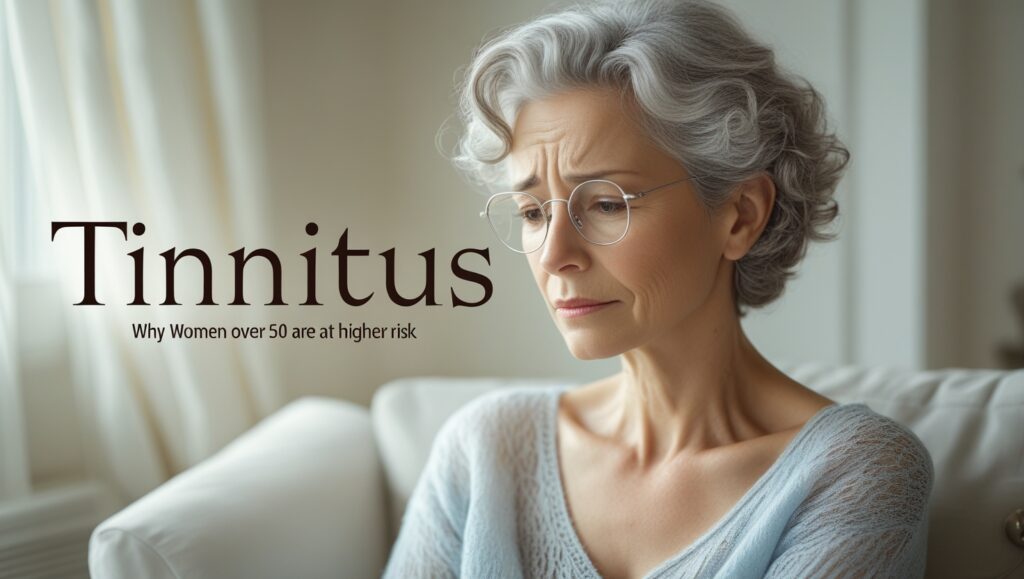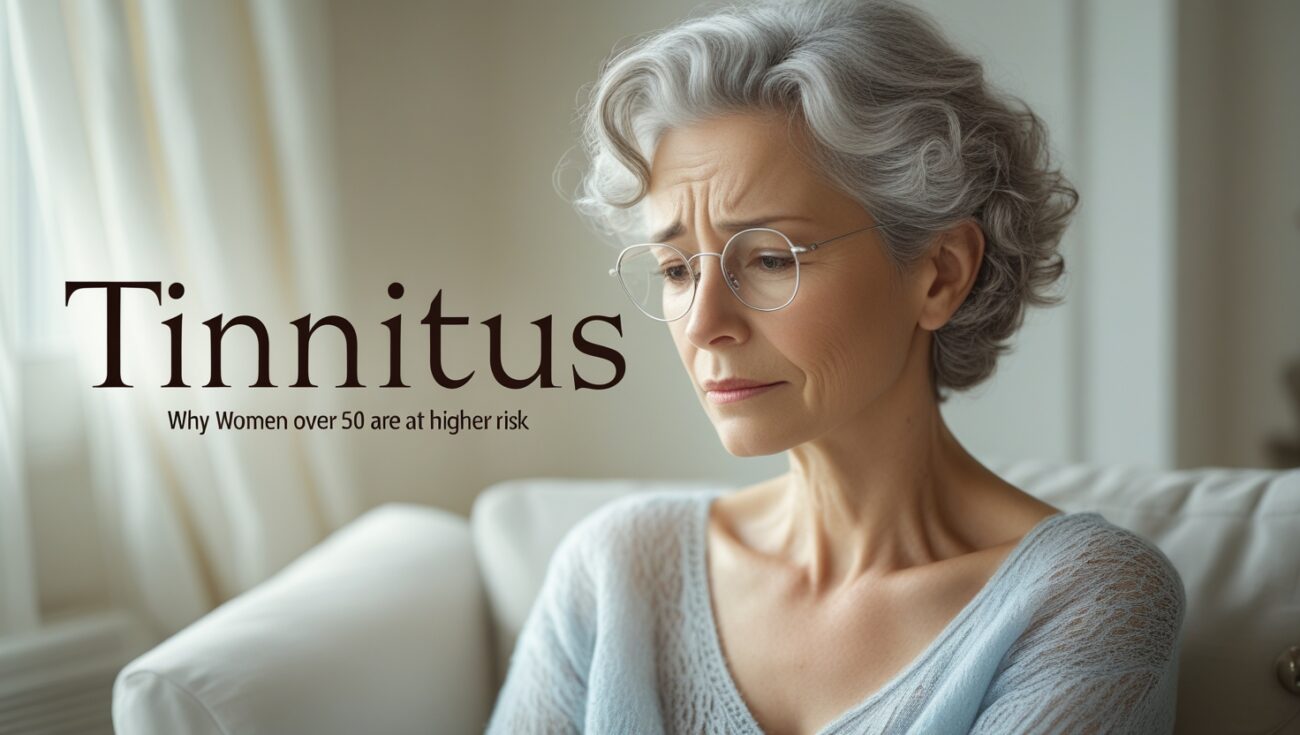Why Women Over 50 Are at Higher Risk for Tinnitus
When my tinnitus first started getting worse in my early 50s, I kept wondering:
“Why now? What’s changed?”
Turns out, I wasn’t alone — a lot of women experience new or worsening tinnitus as they approach or go through their 50s.
Once I learned why this happens — and started supporting my ear health with Quietum Plus — I finally began to feel like I had more control over it.

Table of Contents
Why Tinnitus Risk Increases After 50
There are a few key reasons women in this age group are more likely to experience tinnitus:
✅ Hormonal changes (especially around menopause) can affect blood flow and nerve function
✅ Hearing changes — natural age-related hearing loss often starts to show
✅ Increased risk of high blood pressure or circulation issues
✅ More exposure to noise damage over a lifetime
✅ Higher levels of stress and sometimes sleep disruption
My Experience After 50
When I hit 50, I started noticing more ringing — especially on stressful days or after poor sleep.
Once I started using Quietum Plus — which supports circulation, nerves, and ear health — those bad days became way more manageable.
What’s Happening in the Body
As estrogen levels drop, so does blood flow — which affects the tiny structures in the ear that help regulate sound.
At the same time, nerves can become more sensitive — which is why many women notice an increase in tinnitus after menopause.
How I Manage It Now
Here’s what’s helped me the most:
✅ Daily Quietum Plus (to support circulation + calm nerves)
✅ Staying active — daily walks really help
✅ Managing stress through breathing, yoga, or stretching
✅ Using sound therapy when needed
✅ Eating a diet rich in magnesium, zinc, and antioxidants
Final Thoughts
If you’re wondering why women over 50 are at higher risk for tinnitus, it often comes down to a mix of hormonal changes, circulation, and nerve sensitivity.
But the good news — there’s a lot you can do to support your ears and feel better day to day. For me, Quietum Plus made the biggest difference.
If you want to try what’s helped me so much, here’s where to grab it:
Quietum Plus — Official Site
One of the first things I noticed after turning 50 — my tinnitus wasn’t just louder, it was more inconsistent — some days were good, some were awful.
That inconsistency was so frustrating — but once I learned about how hormonal shifts affect the ears, it made sense.
After menopause, our estrogen levels drop, which affects circulation — and ears are very sensitive to those changes.
Since adding Quietum Plus daily, I’ve noticed my ringing has leveled out — fewer random spikes, more calm days.
Another thing I noticed — stress plays an even bigger role now. If I let stress build up, my tinnitus definitely flares more after 50.
That’s why I love that Quietum Plus includes calming herbs — I feel more balanced even on tougher days.
I also started doing more neck and jaw stretches — tension in those areas gets worse with age and can really worsen tinnitus.
One habit I built: tracking my ringing in a simple journal — when I added Quietum Plus, I could clearly see my “bad days” go down over a few weeks.
I also noticed that sleep quality became more important — when I sleep better, my ears are much calmer the next morning.
That’s another reason I love Quietum Plus — some of the ingredients (like ashwagandha) support better sleep and relaxation.
I also cut back on salt — after 50, too much salt can affect blood pressure, which directly affects ear health.
Since being more mindful of nutrition and adding Quietum Plus, my ears feel way less sensitive overall.
I also stopped blaming myself — tinnitus after 50 is so common, and knowing why helped me take action instead of feeling stuck.
One thing my doctor told me: “Protect the hearing you still have” — and that’s exactly why I’m consistent with Quietum Plus.
It’s been a huge relief to feel like I’m doing something proactive for my ears — not just sitting around hoping they’ll improve.
Since taking Quietum Plus every morning, I’ve had way more “good ear” days — and even on the rough days, it’s more manageable.
If you’re over 50 and struggling with tinnitus, know that it’s very common — and with daily support, you can absolutely feel better.
I highly recommend trying Quietum Plus — it’s been the biggest game-changer for me as I moved through this stage of life.
Another thing I noticed after turning 50 — even small things like caffeine or sugar affected my tinnitus more than they used to.
That’s why I really focused on cutting back on stimulants — and making Quietum Plus a key part of my morning routine.
I also started walking more — light daily movement helps keep circulation strong, which is so important for ear health after 50.
One positive surprise — since supporting my ears with Quietum Plus, I can now enjoy quiet moments again without the ringing being the only thing I hear.
Before, I avoided stillness because the tinnitus felt so loud — now it’s much more in the background.
I also stopped thinking of tinnitus as something I had to “suffer through” — with the right tools, I really believe it can be managed.
Since turning 50, I also started protecting my ears more — using earplugs when needed and keeping headphone volume lower.
Knowing that I’m taking Quietum Plus daily gives me confidence that I’m protecting my hearing for years to come.
One of the biggest shifts for me — learning that tinnitus is not “just something you have to live with” — there’s so much you can do to support your ears.
If you’re like me — a woman over 50 — I can honestly say Quietum Plus helped me feel empowered again about my ear health and life.

